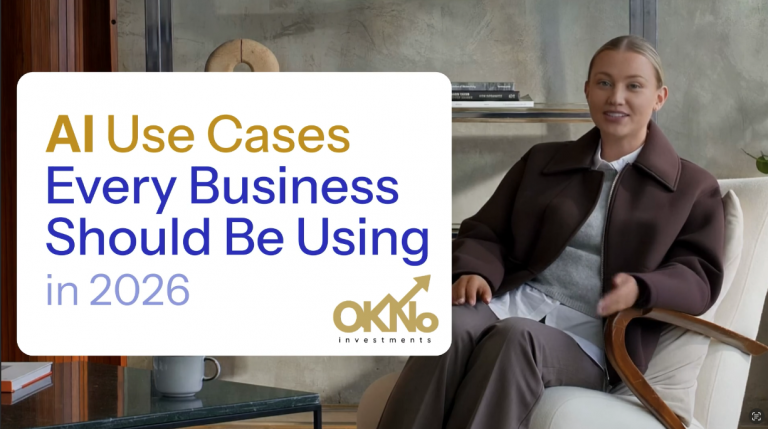The Top 3 CRMs Most Used and Reliable for 2025
Customer Relationship Management (CRM) systems have become indispensable tools for businesses of all sizes. As we look ahead to 2025, the CRM landscape continues to evolve with new features, better integrations, and enhanced user experiences.
If you’re planning to invest in a CRM or upgrade your current system, it’s crucial to choose one that is both widely used and highly reliable. This article will explore the top 3 CRMs that are expected to lead the market in 2025, supported by public insights and forecasts.
1. Salesforce: The Industry Leader
Salesforce has long been the dominant player in the CRM market, and its influence shows no signs of waning as we move toward 2025. Known for its robust features and extensive customization options, Salesforce remains the go-to choice for businesses seeking a powerful and scalable CRM solution.
According to a recent report by Gartner, Salesforce continues to hold the largest market share in the CRM space, with nearly 20% of the global market. The company’s focus on artificial intelligence (AI) and machine learning (ML) integrations, particularly through its Einstein AI platform, has been a significant factor in its ongoing success.
Why Salesforce is Reliable: Salesforce’s reliability comes from its extensive ecosystem, including thousands of third-party apps available through the Salesforce AppExchange. This allows businesses to tailor the CRM to their specific needs. Additionally, Salesforce’s cloud-based architecture ensures high availability and security, making it a dependable choice for enterprises and small businesses alike.
Looking Ahead to 2025: Salesforce is expected to continue leading the market, particularly as it invests more in AI-driven automation and advanced analytics. The company’s commitment to innovation will likely keep it at the forefront of the CRM industry.
2. HubSpot: The User-Friendly Favorite
HubSpot has gained significant traction in recent years, particularly among small to medium-sized businesses (SMBs). Known for its intuitive interface and seamless integration with marketing tools, HubSpot is becoming increasingly popular as a CRM solution that balances ease of use with powerful features.
A recent survey by Capterra found that HubSpot CRM ranks among the top 5 most-used CRMs globally, with a growing user base in both B2B and B2C sectors. The survey highlighted HubSpot’s appeal to businesses looking for an all-in-one platform that includes marketing, sales, and service tools.
Why HubSpot is Reliable: HubSpot’s reliability stems from its commitment to user experience. The CRM is easy to set up and use, making it accessible even to businesses without dedicated IT teams. Moreover, HubSpot offers a free CRM version, which is fully functional and provides an excellent entry point for businesses just starting with CRM systems.
Looking Ahead to 2025: HubSpot is expected to continue expanding its market share, especially among SMBs. With ongoing improvements in AI-powered features and enhanced customization options, HubSpot is likely to remain a top choice for businesses seeking a user-friendly and reliable CRM.
3. Microsoft Dynamics 365: The Enterprise Powerhouse
Microsoft Dynamics 365 is a CRM that caters primarily to large enterprises, offering deep integration with Microsoft’s suite of products, including Office 365 and Azure. Its ability to handle complex business processes and provide advanced analytics makes it a top contender for 2025.
Forrester Research indicates that Microsoft Dynamics 365 is steadily increasing its market share, particularly among large organizations that require sophisticated CRM capabilities. The platform’s integration with Microsoft’s other products is a key selling point, as it allows for a seamless workflow across different business functions.
Why Microsoft Dynamics 365 is Reliable: Microsoft Dynamics 365’s reliability comes from its robust infrastructure and comprehensive feature set. It is particularly well-suited for companies with complex CRM needs, such as those requiring advanced reporting, supply chain management, or financial services integration. Additionally, Microsoft’s cloud services provide scalability and security, ensuring that Dynamics 365 can grow with your business.
Looking Ahead to 2025: Microsoft Dynamics 365 is expected to solidify its position as a leading CRM for enterprises. The continued integration of AI and IoT (Internet of Things) capabilities will enhance its value proposition, particularly for businesses looking to leverage data-driven insights for strategic decision-making.
Conclusion
As we approach 2025, the CRM landscape is set to be dominated by Salesforce, HubSpot, and Microsoft Dynamics 365. Each of these platforms offers unique strengths, catering to different business needs and sizes. Salesforce remains the industry leader with its comprehensive ecosystem and innovation in AI. HubSpot appeals to SMBs with its user-friendly design and all-in-one capabilities, while Microsoft Dynamics 365 serves large enterprises with its powerful integrations and advanced features.
Choosing the right CRM is crucial for business growth and customer satisfaction. Whether you’re a small business or a large enterprise, investing in a reliable CRM like Salesforce, HubSpot, or Microsoft Dynamics 365 will position your company for success in the years to come.
Ready to take your customer relationship management to the next level? Contact our experts today to find the perfect CRM solution tailored to your business needs and goals.




